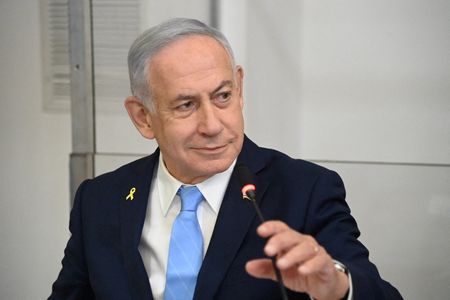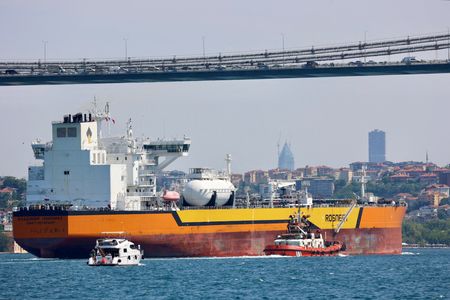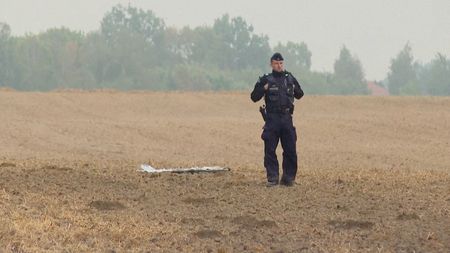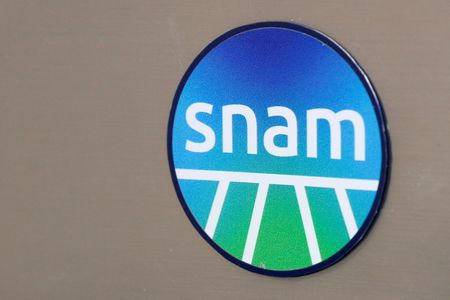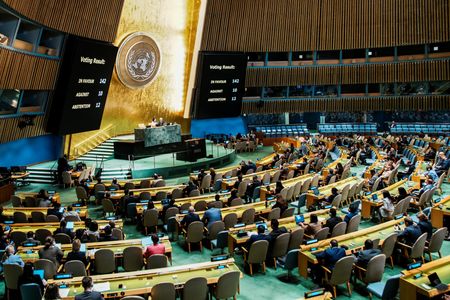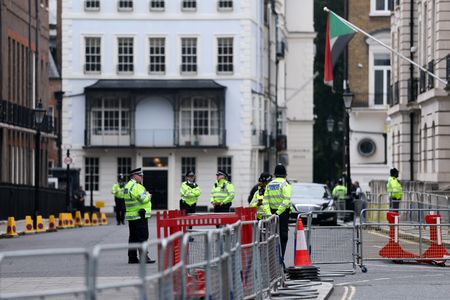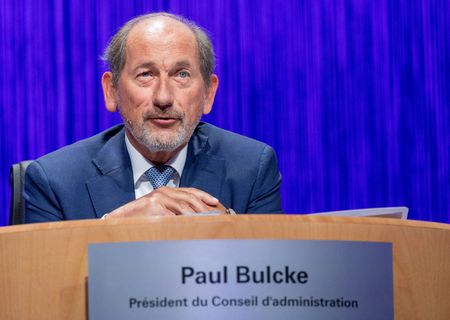By Maayan Lubell
JERUSALEM (Reuters) -Prime Minister Benjamin Netanyahu left his corruption trial abruptly on Monday to give evidence in a separate investigation into possible ties between his aides and Qatar, Israel’s public broadcaster Kan reported.
Two suspects in the investigation, dubbed “Qatar-gate” in Israel, had been arrested earlier on Monday, police said. It provided no further details, citing a court-ordered gag on the case.
A spokesman for the prime minister did not immediately respond to a request for comment. A source close to Netanyahu confirmed the reports. Kan said Netanyahu was not a suspect and would provide testimony at his office in Jerusalem.
Netanyahu, who is on trial over a separate series of corruption charges which he denies, has rejected the accusations regarding his aides and Qatar as “fake news” and a politically motivated campaign against him.
A Qatari official also dismissed the accusations as part of a “smear campaign” against Qatar.
According to recent investigations by Kan and the left-leaning Haaretz newspaper, the aides are suspected of having orchestrated or been involved in a campaign to improve Qatar’s image abroad. They deny any wrongdoing.
Earlier on Monday, Netanyahu named a new chief to take over Israel’s domestic intelligence agency after a bitter standoff with the current head who has been presiding over the Qatar investigation, together with police.
Netanyahu tapped a former commander of Israel’s navy, Eli Sharvit, to replace Shin Bet head Ronen Bar, who remains in office pending a Supreme Court decision over legal challenges to his dismissal.
PROTESTS
Government moves to dismiss Bar, who has presided over the investigation into possible ties between Qatar and three of Netanyahu’s aides, have provoked street protests in Tel Aviv and Jerusalem.
Netanyahu said he had lost his confidence in Bar over the October 7, 2023, security failure that led to Israel’s deadliest single day and triggered the war against Hamas in Gaza.
The Supreme Court has frozen Bar’s dismissal and is due to hear petitions against it on April 8, but ruled that in the meantime Netanyahu could move ahead and interview candidates to replace him.
Critics, including opposition lawmakers and watchdog groups, challenged Bar’s dismissal in court and said its timing raised concern that it was meant to scupper a Shin Bet and police investigation announced in late February into possible links between Netanyahu aides and Qatar.
Qatar is not defined by Israel as an enemy state but is home to some Hamas leaders. Along with Egypt, it has been mediating indirect negotiations between Israel and the Palestinian militant group for a ceasefire in Gaza.
Bar, who played a role in negotiating a ceasefire and hostage deal with Hamas in January, has said his dismissal was tainted by conflicts of interest and would jeopardise the Qatar investigation.
Netanyahu’s Likud party said on Monday that the investigation, and Monday’s arrests, were part of a plot to halt Bar’s dismissal and oust the prime minister.
Bar’s dismissal has fuelled street protests against Netanyahu and his government over its conduct of the war in Gaza and demonstrations were expected to continue on Monday.
Tens of thousands of people have joined the demonstrations against Bar’s sacking, which they cast as an attempt to undermine state institutions while prolonging the war in Gaza for political gains at the expense of hostages still held there.
Netanyahu said on Sunday the recent resumption of fighting in Gaza, which shattered a two-month truce, was meant to pressure Hamas into freeing the 59 hostages still held in Gaza.
(Editing by James Mackenzie, Gareth Jones, William Maclean)

